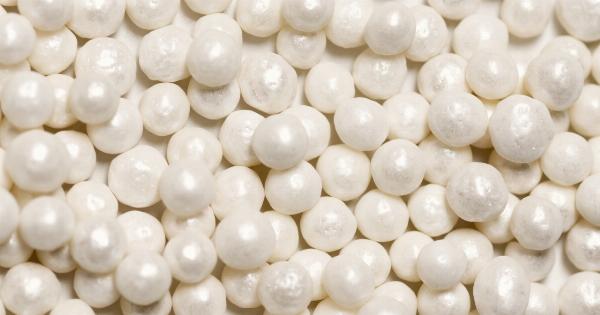When a bone breaks, it requires time and proper nutrition to heal properly. The foods we eat play a crucial role in bone healing by providing essential nutrients that aid in the rebuilding process.
In this illustrated guide, we will explore 12 foods that can help speed up bone healing and ensure a strong recovery.
1. Dairy Products
Dairy products like milk, cheese, and yogurt are excellent sources of calcium, which is vital for bone health and healing. Calcium helps in the formation of new bone tissue and strengthens existing bones.
Additionally, dairy products are rich in protein, which is necessary for the production of collagen, a key component of the bone matrix.
2. Leafy Greens
Leafy greens such as spinach, kale, and broccoli are packed with nutrients like calcium, magnesium, and vitamin K, all of which are essential for bone healing.
Vitamin K, in particular, aids in the synthesis of proteins that regulate bone metabolism and mineralization.
3. Citrus Fruits
Citrus fruits like oranges, lemons, and grapefruits are high in vitamin C, which plays a vital role in collagen synthesis. Collagen is the main protein in bones and provides the structural framework for bone healing.
Including citrus fruits in your diet can promote faster and stronger bone healing.
4. Berries
Berries such as strawberries, blueberries, and raspberries are rich in antioxidants, which are crucial for the healing process. Antioxidants help reduce inflammation and oxidative stress, which can impede bone healing.
Adding these vibrant fruits to your diet can support faster recovery.
5. Nuts and Seeds
Various nuts and seeds, including almonds, walnuts, and flaxseeds, are excellent sources of essential minerals like calcium, magnesium, and phosphorus. These minerals are vital for bone strength and can aid in the healing process.
Additionally, nuts and seeds are rich in healthy fats that help reduce inflammation and support bone health.
6. Fish
Fatty fish such as salmon, mackerel, and sardines are packed with omega-3 fatty acids, which have anti-inflammatory properties. Inflammation can delay the healing process, so consuming fish can help reduce inflammation and promote faster bone healing.
7. Lean Proteins
Lean proteins like chicken, turkey, and lean beef are necessary for bone healing. Proteins provide the building blocks for new bone tissue formation and aid in collagen synthesis.
Including lean proteins in your diet can ensure a steady supply of the essential amino acids needed for bone healing.
8. Legumes
Legumes like beans, lentils, and chickpeas are a great source of protein, fiber, and various essential minerals. Protein is essential for bone healing, while fiber supports optimal digestion and nutrient absorption.
The minerals found in legumes, such as magnesium and potassium, contribute to bone health.
9. Whole Grains
Whole grains like quinoa, brown rice, and whole wheat bread provide a range of nutrients necessary for bone healing. They contain B vitamins, zinc, and magnesium, which all play a role in bone health and regeneration.
The fiber in whole grains also aids in digestion and absorption of these nutrients.
10. Eggs
Eggs are a rich source of protein, vitamin D, and other nutrients necessary for bone health. Vitamin D is essential for calcium absorption and bone mineralization, making it critical for the healing process.
Consuming eggs can provide the necessary nutrients to support bone healing.
11. Avocado
Avocado is a nutrient-dense fruit that contains healthy fats, vitamins, and minerals. It is particularly rich in vitamin K and vitamin C, which are important for bone healing.
Additionally, the monounsaturated fats in avocados can reduce inflammation and support overall bone health.
12. Turmeric
Turmeric, a yellow spice commonly used in cooking, contains a compound called curcumin, which has potent anti-inflammatory properties. Including turmeric in your diet can help reduce inflammation and promote faster healing of bone injuries.
By incorporating these 12 foods into your diet, you can provide your body with the necessary nutrients to support bone healing and ensure a strong recovery.
Remember to consult with a healthcare professional or nutritionist for personalized guidance based on your specific needs.































